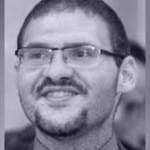In September 2015 at the United Nations General Assembly, leaders from around the world will decide on the sustainable development goals (SDGs) that will replace the Millennium Development Goals which have had mixed success. For health promoters around the world these negotiations are important, as the goals will be universally applicable for all states. Last July a UN Open Working Group tasked with preparing a proposal recommended a set of 17 Goals and 169 targets. Many are relevant for EuroHealthNet; several directly so:
Goal 3: Ensure healthy lives and promote well-being for all at all ages includes targets on
- maternal mortality;
- preventable deaths of newborns and under-five children;
- AIDS, tuberculosis, malaria, and neglected tropical diseases and combat hepatitis, water-borne diseases, and other communicable diseases;
- reducing mortality from non-communicable diseases (NCDs) through prevention and treatment, and promote mental health and wellbeing;
- strengthen prevention and treatment of substance abuse, including narcotic drug abuse and harmful use of alcohol
- strengthen implementation of the Framework Convention on Tobacco Control in all countries
- halve global deaths and injuries from road traffic accidents
- universal health coverage
- health workforce
Although Goal 3 is the main target that deals with health, other goals are equally important to tackle social and environmental determinants of health, notably:
- Goal 1: End poverty in all its forms everywhere;
- Goal 2: End hunger, achieve food security and improved nutrition and promote sustainable agriculture;
- Goal 4: Ensure inclusive and equitable quality education and promote lifelong learning opportunities for all;
- Goal 5: Achieve gender equality and empower all women and girls;
- Goal 6: Ensure availability and sustainable management of water and sanitation for all;
- Goal 7: Ensure access to affordable, reliable, sustainable and modern energy for all;
- Goal 8: Promote sustained, inclusive and sustainable economic growth, full and productive employment and decent work for all;
- Goal 10: Reduce inequality within and among countries
- Goal 11: Make cities and human settlements inclusive, safe, resilient and sustainable.
To support the implementation of the framework, the World Health Organisation developed a position outlining health indicators for agriculture, food and nutrition security; disaster risk management; energy; jobs; and sustainable cities.
Next steps
- There will be a special Summit on sustainable development at the United Nations in September 2015, where world leaders will be asked to agree the new agenda, including a set of Sustainable Development Goals.
- In May 2015: The communication from the European Commission will be followed by Foreign Affairs Council Conclusions on Means of Implementation. Prior to the September Summit in New York, the international community will gather for the third International Conference on Financing for Development in Addis Ababa, in July 2015. The Conference is expected to lay out how the newly proposed post-2015 framework could be implemented through both financial and non-financial “means of implementation”. This reflects the fact that in order to successfully put the post-2015 framework into practice, it will need both the right policies and adequate financial means at a number of different levels.
- Agreement on the post-2015 agenda will also have important implications for negotiations for the 21st Conference of the Parties (COP21) of the UN Framework Convention on Climate Change in Paris in December, as latest draft texts show.

I had the opportunity to attend the Global Health Forum in Taiwan in December, and represent EuroHealthNet on the EU (external) Global Health Policy Forum and at the (internal) EU Health Policy Forum. EuroHealthNet has already worked substantially on such issues in Europe through research and policy studies and projects. If your agency or institute has a national or regional project or programme on related topics, please do let us know so we can promote and integrate your actions or help to seek further studies.

Leonardo Palumbo
Leonardo is the Senior Policy Coordinator for health and social investment at Eurohealthnet. His role is to manage and develop the European Platform for Health and Social Equity (PHASE) as an advocacy and action-oriented body for EuroHealthNet members plus a wider range of partners from relevant fields willing and able to work on addressing the wider determinants of health. In addition, Leonardo manages the EuroHealthNet’s work plan in the framework of the EU Programme for Employment and Social Investment programme (EaSI).


